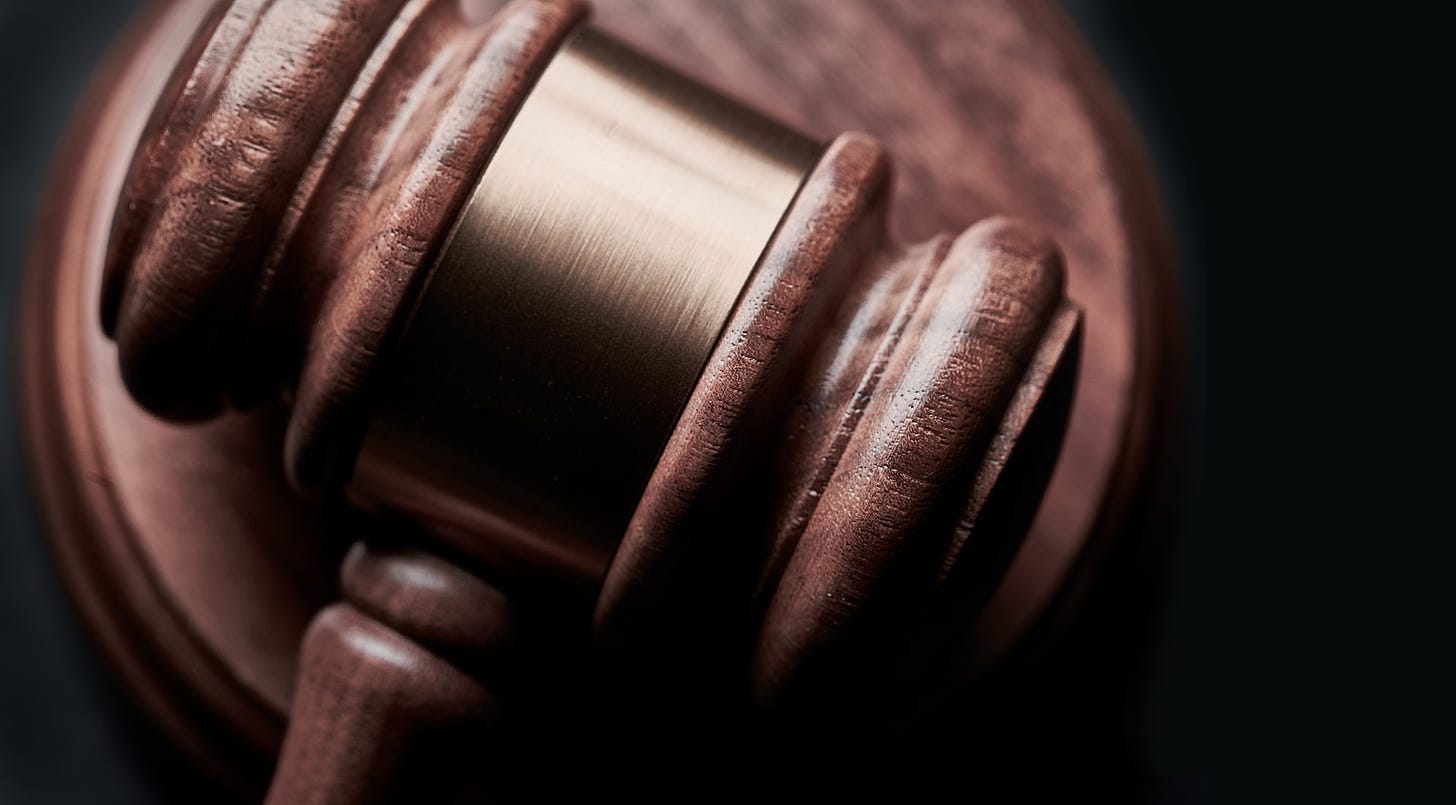Interestingly, however, there is an important limitation on Biden’s ability to pardon Donald Trump. The new president cannot pardon the former president in his impeachment trial. One of the few limitations that the Constitution places on the presidential pardon power is that it cannot be used for impeachments.
The only other limitation that Biden would face is that he can only pardon “offenses against the United States.” Therefore, even with a pardon in hand, Donald Trump might still face state charges if Georgia prosecutors decide to indict him or if Manhattan District Attorney Cyrus Vance Jr.’s investigation into Trump’s taxes bears fruit. Recall that Vance’s investigation led to the Supreme Court, which delayed action on a subpoena presented to Mazars USA, Trump’s accounting firm. With no presidential immunity, Vance is now likely to have access to Trump’s taxes. A pardon would also not apply to civil suits.
There is precedent for the pardon of a former president. In 1974, President Gerald Ford pardoned former President Richard Nixon for crimes that he may have committed while in office. Nixon had resigned a month earlier due to fallout from the Watergate scandal. Nixon’s infamous tapes had implicated the president in ordering a coverup of White House connections to the burglary of the Democratic National Committee headquarters.
Ford’s pardon was widely unpopular at the time and may have cost him the election in 1976 but today is generally considered to have been the right thing to do. The pardon allowed the county to heal and move forward more quickly by avoiding the divisive trial of a disgraced former president.
(In another bit of historical trivia, Ford was the only vice president never elected to that office. He was appointed by Nixon after Vice President Spiro Agnew was caught up in a corruption scandal and resigned after pleading no contest to felony tax evasion. Ford, who had been the House Minority Leader before being appointed vice president, was never elected to the office of either president or vice president.)
There are compelling arguments on both sides of the pardon question. At the top of the arguments for a pardon is Biden’s professed desire to bring healing and unity to the country. President Trump was a popular figure within the Republican Party, at least until recent weeks, and still has many strong supporters. Many people would see a Trump indictment as partisan retribution, but even many people who are not Trump supporters don’t want to see the country go through a trial or series of trials in which federal prosecutors go after the former chief executive.
On the other hand, I’ve always believed that it was not the Founders’ intention that presidents and other government officials should be above the law or given a pass when they commit crimes. Some contrition or admitting that his claims that the election was stolen were false would help the case for a pardon. Nixon resigned his office, showing that he knew what he did was wrong (or at least that his political position was untenable), but Trump has shown no remorse for any of his actions and has never recanted his unsupported allegations of widespread election fraud that provoked the riot. The closest the former president came to expressing remorse was to condemn the violence at the Capitol a week after it occurred.
I did agree with my fellow Racketeers that a pardon in exchange for Trump’s resignation after the riot would be fair and good for the country, but since Trump completed his term, the argument for a pardon is not as strong now. This is especially true since there are so far no federal indictments against the president and there might never be any.
As with Ford, a pardon now might hurt Biden more than it would help Trump and the country. Biden has expressed support for moving on past the Trump controversies, but a sizable portion of the Democratic base wants Trump’s head mounted on the wall. While moderates and independents would likely appreciate a Trump pardon (and Republicans certainly would), it would anger a progressive base that is already not thrilled with Biden. Any hopes of a second term will also enter Biden’s pardon calculus.
Biden could avoid investigations by issuing a pre-emptive pardon mirroring Ford’s order granting “a full, free, and absolute pardon… for all offenses against the United States which he… has committed or may have committed or taken part in during” his term in office. A downside to this strategy is that it would pre-empt investigations which may discover more wrongdoing and that would lead to more indictments. Any criminal activity could extend beyond President Trump to staffers or his family. For instance, several Republican elected officials had requested pardons from Trump for their roles in the Capitol insurrection but did not receive them.
A pardon would also not end speculation about whether Trump committed crimes in office. The former president might benefit from investigations if they fail to show that he broke the law.
In my opinion, President Biden should hold off on any pardon of Donald Trump for the time being. Biden’s pardon would not affect the impeachment proceedings in the Senate or the possible New York state charges against the former president, which are the two biggest legal threats for Trump at the moment. Therefore, it would be of little value in bringing the country together at the present time.
I also believe that the nation deserves to know the truth about Trump’s activities while he was president. That includes whatever involvement he may have had in the insurrection as well as any other crimes that he might have committed through abuse of his presidential powers. The best way to learn the truth is to let any investigations that arise proceed for the time being. Biden will always have the option to pardon Trump later.
Do you think that President Biden should pardon Donald Trump? Let us know what you think.

No comments:
Post a Comment